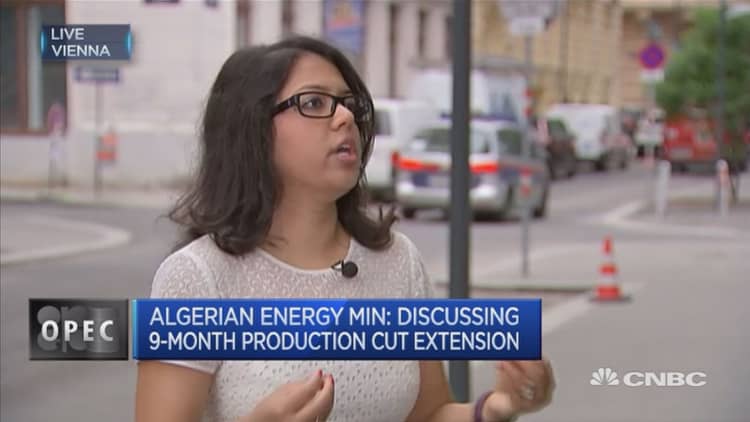
The White House's plan to sell off half the country's strategic stockpile of crude oil looks like a hasty decision to some analysts, but to others its an idea whose time has come.
The budget proposal released last Tuesday is projected to reduce the deficit by $16.6 billion over 10 years. It calls for drawing down the U.S. Strategic Petroleum Reserve — the world's largest stockpile — over that period.
The reserve, which now totals 687.7 million barrels, was established after the 1970s oil crisis to ensure the U.S. economy would not suffer shocks in times of tight supply. It has only been used three times to counter import cutoffs or for foreign policy purposes.
When the time does come that you really do need the oil that's in this cavern, you can't just snap your fingers and try to pump it from the shale producers, or anywhere else.John KilduffAgain Capital founding partner
Still, some question whether the reserve is still necessary as the United States inches toward energy independence. U.S. crude oil output has surged in the last decade, thanks to a technological revolution in drilling methods that allows producers to quickly tap new supplies.
"With rising U.S. production, our imports from unstable parts of the world have really plummeted, plus we don't need as much as before," Kyle Cooper, partner at energy commodity trading firm TradeWell Energy, told CNBC's "Closing Bell" on Tuesday.
Cooper noted that most U.S. crude oil imports come from Canada, a relatively stable source. The United States imported 3.8 million barrels a day of crude and petroleum products from Canada in 2016, more than the total it purchased from OPEC nations combined.
But John Kilduff, founding partner at energy hedge fund Again Capital, said the key word is "strategic." He noted top oil exporter Saudi Arabia just struck a $110 billion U.S. arms deal, suggesting Riyadh is uncertain about the security situation in the oil-rich Middle East.
To be sure, the White House most recently tapped the Strategic Petroleum Reserve to offset import disruptions during the 2011 Arab Spring protests.
"When the time does come that you really do need the oil that's in this cavern, you can't just snap your fingers and try to pump it from the shale producers, or anywhere else," he told "Closing Bell" on Tuesday.
"I think it's misguided completely."
He further noted that one would typically want to buy low and sell high. Oil prices have recovered from 12-year lows struck last year, but remain at half the value of their 2014 peaks.

Amrita Sen, chief oil analyst at Energy Aspects, said Trump's proposal is not likely to get past Congress. However, some sales of strategic petroleum will continue, she told CNBC on Wednesday.
The federal government sold some of the crude this year to fund upkeep at the Gulf Coast caverns that house the reserve and to pay for medical research. President Barack Obama and Congress in 2015 also considered selling off nearly a quarter of the reserve to help reduce the deficit and fund infrastructure spending.
Asked about the prospects for Trump's larger draw down, Tom Albanese, chief executive of Vedanta Resources, told CNBC on Wednesday it "feels a bit opportunistic … so let's see how that goes."


